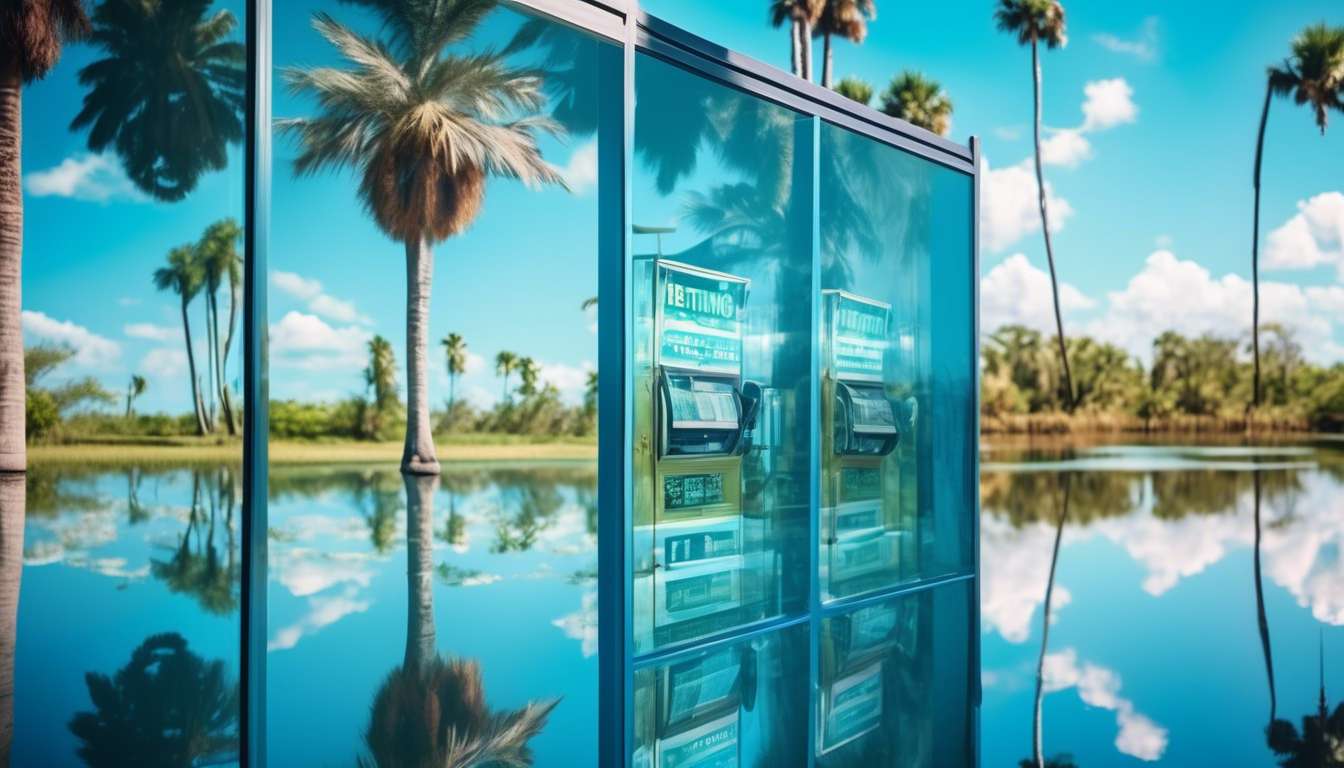As residents of Florida, we find ourselves pondering a question that has sparked much debate and curiosity: why is there no sports betting in our state? While many states across the nation have embraced this rapidly growing industry, we remain on the sidelines, watching from afar.
The absence of sports betting in Florida is not due to a lack of interest or demand. Instead, it is the result of a complex web of legal, political, and social factors that have shaped our state’s stance on this issue.
We have seen neighboring states reap the economic benefits of legalized sports betting. Yet, we continue to grapple with the intricacies of legislative hurdles and negotiation challenges.
In this article, we aim to explore the reasons behind Florida’s unique position by examining:
-
Historical Context: Understanding the past decisions and legislation that have influenced the current landscape.
-
Stakeholders Involved: Identifying key players such as government bodies, tribal organizations, and advocacy groups.
-
Potential Future: Analyzing the possibilities and pathways for sports betting within our borders.
By delving into these aspects, we hope to shed light on the complexities surrounding sports betting in Florida and consider what the future might hold.
Historical Precedents
Florida’s journey into sports betting has been shaped by numerous historical precedents that have influenced its legal landscape. The evolution of tribal gaming has played a pivotal role in shaping the state’s approach to gambling.
The Seminole Tribe, for instance, has established a significant presence by negotiating agreements that expand their gaming rights. This history has laid the groundwork for how sports betting could potentially unfold in Florida.
Our legal framework has long been intertwined with these tribal agreements, creating a unique dynamic in the state’s gambling scene. The balance between respecting tribal sovereignty and exploring new betting avenues has been a delicate dance.
We’ve seen political opposition arise, fueled by concerns about:
- Gambling’s social impact
- Competition with existing gaming operations
These historical precedents remind us of the complexities involved. As we consider sports betting’s future in Florida, understanding our past helps us navigate the challenges ahead together, united in our shared history.
Legal Framework Challenges
Navigating the myriad of legal framework challenges in Florida’s sports betting landscape requires us to address both state regulations and tribal agreements.
Tribal Gaming Considerations:
- The Seminole Tribe holds exclusive rights to operate casino gaming in Florida under a compact with the state.
- This agreement complicates the introduction of broader sports betting legislation, as any new laws must ensure compliance with existing tribal agreements to avoid conflicts.
Interaction with Federal Laws:
- State regulations must also consider federal laws like the Indian Gaming Regulatory Act, which governs tribal gaming operations.
- Crafting a legal framework that respects these agreements while paving the way for sports betting is a delicate balance.
Political Opposition:
- Various stakeholders have differing views on how sports betting should be implemented, if at all.
- Political opposition is a formidable hurdle that must be addressed.
Path Forward:
- As we work through these complex layers, maintaining a sense of unity and shared purpose will be key.
- Overcoming these challenges is essential for moving towards a future where sports betting can be part of Florida’s culture.
Political Opposition Impact
Navigating the political landscape, we encounter significant resistance from various stakeholders who are cautious about the implications of legalizing sports betting in Florida.
Political opposition stems from concerns about the potential impact on the existing tribal gaming agreements. These agreements are a core part of Florida’s legal framework and have been carefully negotiated over time. Some worry that introducing sports betting could disrupt these delicate arrangements, causing financial and legal challenges for stakeholders involved.
Additional opposition comes from lawmakers who are skeptical about the benefits of sports betting. They argue that it might not deliver the promised economic advantages and could instead lead to increased social issues. This apprehension is shared by community groups who fear that legalizing sports betting might compromise the state’s family-friendly reputation.
To move forward, we must:
- Engage in open dialogue with all stakeholders.
- Address their concerns proactively.
- Illustrate the potential benefits of legalizing sports betting.
By doing so, we can work towards a consensus that respects Florida’s unique gaming environment.
Tribal Gaming Complications
In navigating the complexities of Florida’s gaming landscape, we must consider the intricate relationship between existing tribal agreements and the introduction of sports betting. Tribal gaming holds a significant place in Florida’s legal framework, shaping how we approach new gambling ventures.
The Seminole Tribe, a key player, operates under a compact that grants them exclusive rights to specific gaming activities. Any shift towards sports betting must be carefully negotiated within these boundaries.
We’ve encountered political opposition when attempting to expand gambling activities. Many stakeholders fear potential disruptions to established agreements, which could lead to prolonged legal battles. The tribal gaming entities are protective of their rights, making our task of introducing sports betting even more challenging. It’s essential that we respect these relationships and navigate the legal framework thoughtfully.
By understanding the delicate balance between tribal interests and state objectives, we’re working to find a path that:
- Honors existing agreements.
- Explores new possibilities for sports betting in Florida.
This approach ensures that we maintain the integrity of current agreements while pursuing potential growth opportunities.
Economic Implications Analysis
Evaluating the Economic Implications of Legalizing Sports Betting in Florida
To fully understand the impact of legalizing sports betting in Florida, we must consider both potential revenue streams and the broader impact on the state’s economy.
Potential Financial Benefits:
-
Increased Tax Revenues: Legalizing sports betting could lead to significant financial benefits through enhanced tax collections.
-
Job Creation: The expansion of the betting industry may also result in new employment opportunities within the state.
Challenges:
-
Tribal Gaming Landscape: Integrating sports betting with Florida’s existing tribal gaming operations presents unique challenges. The legal framework must negotiate agreements that respect the sovereignty of tribal operations while allowing the market to open to new opportunities.
-
Political Opposition: Some stakeholders express concerns about potential social costs and impacts on local communities, adding complexity to the legalization process.
Collaborative Approach:
It’s crucial to strike a delicate balance, ensuring all parties feel included and respected. By aligning goals and working collaboratively, Florida can create a legal framework that addresses these diverse concerns.
Conclusion:
By thoroughly examining these economic implications, we can better navigate the complexities involved. This approach will help foster a thriving and inclusive economic environment for all Floridians.
Public Opinion Influence
Public Opinion and Legalizing Sports Betting in Florida
Public opinion plays a pivotal role in shaping the path toward legalizing sports betting in Florida. As a community, we understand that our voices can influence the legal framework surrounding such initiatives.
Tribal Gaming Interests
- The landscape of sports betting is complex, with tribal gaming interests holding significant sway.
- Many Floridians appreciate the cultural and economic contributions of tribal gaming.
- There is a desire to ensure that any legal changes respect existing agreements.
Political Opposition and Concerns
- Political opposition impacts the broader dialogue on legalizing sports betting.
- Concerns include potential negative implications such as addiction and economic disparity.
- These worries resonate with many, highlighting the need for careful consideration and inclusive community discussions.
Community Involvement
It’s crucial that we, as a collective, express our perspectives to guide lawmakers in crafting policies that reflect our diverse views.
In Florida, our shared values and concerns can shape the future of sports betting. By actively participating in conversations, we contribute to a legal framework that balances tradition, innovation, and community welfare.
Regulatory Roadblocks Examination
Numerous regulatory hurdles, including state and federal restrictions, challenge the path to legalizing sports betting in Florida. We find ourselves navigating a complex legal framework where tribal gaming holds significant influence.
The Seminole Tribe plays a pivotal role in any discussions about expanding gaming laws due to their exclusive rights to operate casinos in the state. Their interests must be carefully balanced with state objectives, which isn’t always easy.
Political opposition also presents a significant challenge, stemming from various stakeholders who hold differing views on gambling.
- Some lawmakers argue that sports betting could lead to negative social impacts.
- Others see it as an opportunity for economic growth.
This opposition creates a fragmented political landscape that complicates the path forward.
Federal restrictions, like the Indian Gaming Regulatory Act (IGRA), further complicate matters. This law governs tribal gaming and requires any changes to be negotiated with tribal nations, adding another layer of complexity to an already intricate process.
Together, these factors create a challenging environment for sports betting legalization in Florida.
Future Prospects and Possibilities
As we look forward, there’s genuine optimism that Florida might overcome its current hurdles to embrace a future where sports betting is both regulated and thriving.
We’re hopeful that a balanced legal framework can be established, one that respects the interests of tribal gaming entities while addressing concerns from political opposition. This will require collaboration and compromise, ensuring everyone feels included and valued in the process.
By:
- Engaging with tribal gaming leaders
- Addressing political opposition head-on
We can create a more inclusive dialogue. It’s crucial for us to support a system where all stakeholders, including our communities, can benefit from potential revenues generated by legalized sports betting.
Building a robust, fair legal framework will not only satisfy state regulations but also foster a sense of unity among us. Embracing these possibilities, we can imagine a future where Florida isn’t left behind but instead emerges as a leader in the sports betting arena, reflecting our shared aspirations and growth.
Conclusion
In conclusion, the absence of sports betting in Florida can be attributed to several key factors:
- Historical Precedents: Past regulations and decisions have shaped the current landscape.
- Legal Challenges: Ongoing legal battles have delayed the implementation of sports betting.
- Political Opposition: Some political figures and groups are against the introduction of sports betting.
- Tribal Gaming Complications: Issues related to agreements with tribal entities complicate the process.
- Economic Implications: Concerns about the economic impact and distribution of revenues.
- Public Opinion: Varying levels of public support or opposition to sports betting.
- Regulatory Roadblocks: Complex regulatory requirements hinder progress.
Despite these obstacles, there is potential for change in the future as the landscape of gambling laws continues to evolve.
Stay tuned for updates on the possibility of sports betting becoming a reality in Florida.

